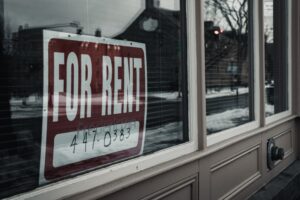What Happens if a Tenant Lies on Their Rental Application?

As a landlord or property manager, finding tenants to fill vacancies is imperative even if challenging. You want the right people to utilize your properties with respect and reliability. Problem tenants create a risk to your business and livelihood.
We recently went over the type of information you should gather to screen potential tenants and the steps you need to take to protect your business. But, what happens when you’ve put the proper parameters in place and find out later your tenant lied to you on their tenant application?
What Tenants Can Lie About
The truth is there is one key element to rental applications that tenants are legally permitted to lie about: their pets. You have every right as a Florida landlord to institute a strict no-pet policy on your properties, but barring an exception, you are not permitted to restrict tenants who have legitimately registered emotional support animals (ESA) or other service animals.
People with physical, emotional, or mental disabilities are not required to disclose the existence of these pets at the time of their application. This is to ensure that potential landlords or property managers do not discriminate against them, even if it’s done so unintentionally. Your only option in this situation is to request a formal letter or proof that the animal is legally registered or necessary (this letter does not have to disclose the specific disability as this information is protected by HIPAA).
When a Tenant Lies About Income, Employment Status, or Criminal History
Beyond this, someone lying on a rental application is exposing themselves to significant liability. Many landlords have minimum income requirements to protect their business and if someone lies about their current employment status or income then it puts future rent payments in limbo.
Lying about criminal history is an entirely other complication. You don’t want people who have a layered history of violent behavior putting other tenants and neighbors at risk. It’s likely a background check will expose these lies before a tenant ever gets in, but if by chance you don’t run a background check and the tenant is found to have lied about their history you have options.
Florida landlords are empowered to evict anyone who is found to have lied on their application. Not only this but there may be legal repercussions – especially if the tenant was required to sign a form indicating that the information was an accurate representation of their circumstances at the risk of a penalty of perjury.
Consult with a Florida Tenant-Landlord Attorney
At Atlas Law, we advocate for Florida landlords and their rights. We are equipped to assist landlords when they discover a tenant lied on their application. It’s important to consult with an attorney before evicting someone to ensure you aren’t violating any laws and have legal support for your actions.
Contact our team should you ever be put in this situation.

 Florida landlords benefit from working and owning properties in such an appealing state. People want to live in the Sunshine State, as evidenced by the recent U.S. Census report that
Florida landlords benefit from working and owning properties in such an appealing state. People want to live in the Sunshine State, as evidenced by the recent U.S. Census report that  A new law in Florida has garnered serious
A new law in Florida has garnered serious  Continued friction between landlords and their tenants has produced a number of proposed solutions. This relationship exists as a two-way street, but each side has some conflicting interests that can worsen these circumstances.
Continued friction between landlords and their tenants has produced a number of proposed solutions. This relationship exists as a two-way street, but each side has some conflicting interests that can worsen these circumstances.



